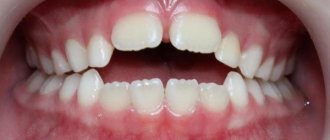April 14, 2016
Averyanova Sveta
A small child is always a mystery that mom and dad have been solving for many years. When will you be able to get the long-awaited toothless smile from your baby, hear the first word, teach him to speak, draw, read?
It’s hard to even imagine how many other questions worry young parents. And most often this happens because they know very little about child development. In fact, everything that happens to a baby from year to year is purely individual.
When will your child be able to say “mama” for the first time? Then, when he is ready for it. But since every mother sooner or later begins to worry, let’s talk about speech development in more detail.
At what months do babies start talking?
Speech is an important tool for communication and socialization. It begins to develop from birth. First, the baby makes the vowel sounds “a”, “u”. This is how he expresses his needs.
From the age of two months, babies become more animated, uttering drawn-out sounds more often, giving them an emotional coloring. They start cooing. By two months, the mother already knows the child well, understands what sounds he uses to express joy, hunger, discomfort, and how he tries to make it clear that he is bored.
At the age of three months, the baby begins to make not only vowels, but also consonant sounds (g, x, k, p, b), and combines them in a certain way (“gu”, “agi”, “agu”). At six months, parents notice the baby's babbling. It differs from humming by the repetition of syllables.
For example, a baby can repeat the sounds “pa-pa-pa”, “ba-ba-ba”, “ma-ma-ma” for a long time. He pronounces them unconsciously. The baby begins to understand what adults are telling him. He develops a passive vocabulary. During this time, it is important to communicate with your child as much as possible.
At seven months, the baby continues to babble. At this age, he begins to play with the timbre and volume of his voice: he drawls out sounds, alternating low and high notes.
A passive vocabulary continues to form. The baby begins to imitate the speech of his parents and the sounds made by adults, animals, and cars.
At 9-10 months, the child pronounces new sounds and communicates with gestures. At this age, he is able to pronounce about 10 monosyllabic words: “woof”, “baba”, “koko”. Girls usually develop speech faster than boys. At what time children begin to speak their first words largely depends on the parents: on how they work with the baby, how they communicate with him.
Physical, intellectual and mental development and hereditary predisposition also have a certain influence. Therefore, it is difficult to give an exact answer as to what time the baby will speak. Caring and persistent parents can speed up the onset of this moment.
The more often a child hears the word “mom,” the faster he will learn to pronounce it.
First sounds
Every baby, when he is born, has only one way to talk to others, to tell them about his problems. This is crying. The first sound that the mother hears from the newborn indicates that he has arrived alive and unharmed in the new world. And from this very moment the baby’s continuous development begins, which will last for more than one year.
At first, the child speaks only the simplest sounds. At first it’s only vowels; after a few months, consonants are added to the baby’s arsenal, but it will still be a long time before he says “mom” consciously. Is it possible to teach him this? There are things that children learn exclusively on their own. However, parents may well push the child and contribute to the rapid development of the baby.
When do children say the word "mom"?
The question of when a child begins to say “mom” is relevant for all mothers. By 10 months, children are already pronouncing monosyllabic words. It is not necessary that a child at this age will say “mom”.
The first word can be “baba”, “dad” or “woof”. But as a rule, by the age of one year, babies already clearly pronounce “mother.” What first word the baby says depends on how the parents communicate with him.
To help your baby start saying “mama” earlier, experts recommend:
- accompany each action with the word “mom” (for example, “mom is feeding Masha”, “mom has come”, “mom is cooking porridge”, “mom is stroking her daughter (son)”);
- play the game “Where is Mom?” Its essence is to cover your face with your hands and ask the baby where mom is. Six-month-old children usually already understand such questions and can point their fingers at people and objects.
Variants of the first words
Daily routine of a 5 month old baby
Statistics say that the first word in the vocabulary of 70% of children under one year old is “mom.” However, this is not at all necessary. Other options are also possible: “nanny”, “woman” or even “kisya” (if the baby is shown a cat every day and repeats its name). The first word can be any word, except those that contain consonant sounds that are difficult to articulate: “sh”, “sch”, “ts”, “r”. A young car lover can say “beep” for the first time; a girl, seeing a beautiful doll, can say “lala.” If the mother is often away, the baby may be the first to name the adult with whom he communicates most: these are grandmothers, aunts, brother or sister (“Anya”, “Lelya”, “Yulia”). Therefore, you should not wait for the child to say “mom”. Perhaps he will say a completely different word first.
In “children’s” language, the baby tries to name everything that interests him
Interesting. The baby's articulatory apparatus develops gradually. At first he pronounces only sounds (the so-called “humming”), then the consonants “m”, “n”, “l” are added to them, as the most convenient for pronunciation. Perhaps this is why the word “mother” sounds similar in all languages of the world - the sounds “m” and “a” are the easiest for a baby to pronounce.
Average age for children to develop conscious speech
At 9-10 months, babies pronounce words unconsciously. They only pronounce various syllables and imitate the speech of their parents. But the baby already understands what adults are telling him, and his vocabulary continues to expand.
Already by 11-12 months, the baby begins to pronounce simple words consciously. Usually these are “mother”, “father”, “woman”, “grandfather”, the names of favorite toys, animals. In total, there are approximately 10 words in the lexicon. By the age of one and a half years, a child can consciously pronounce about 20 words.
By the age of two, many children can already form simple sentences. To stimulate the development of conscious speech in a child, it is necessary to conduct educational activities in the form of a game. For example, Doman cards develop a child well.
They are bright pictures of different subjects (weather, animals, vegetables). It is necessary to show them to the baby and at the same time name what is depicted on them. It is important to talk to your baby as often as possible. When communicating, you should use simple words.
The baby begins to consciously pronounce words closer to 11-12 months.
Answers to frequently asked questions by parents
How do children start talking?
At first, unconsciously, when the pronounced sounds are the result of vocal reactions at randomly occurring positions of the speech organs. The intonation of speech of the people around you gradually changes and is copied. Then - first syllables, and then simple words of a rather onomatopoeic nature.
Well, and progressively: simple words, spoken, albeit not very clearly, but with meaning, appeals to loved ones, bright intonation, telling simple rhymes, and, of course, the famous “why” and “why.”
What time do girls and boys start speaking? Is there a difference?
According to statistics, boys begin to talk later than girls, at approximately 2.5-3 years. Although this is also individual.
How to understand that a child will speak soon?
If your baby is already 2 years old and he pronounces syllables, imitates the sounds of living nature, if he is active, cheerful, hears live human speech and is a participant in communication between close people, then have no doubt - he should be about to speak.
If the family is bilingual, how does this affect when the child should start speaking?
Children are very receptive to languages. Moreover, before the age of 5, learning a second language is very easy. Mastering two at once may lead to some speech delay, but it will be insignificant and implicit.
What other children start talking later?
Later, overly emotional children may begin to speak, because words cannot “keep up” with emotions. They are too calm, they are also silent - they listen and think more.
Kids, whom adults understand without words, fulfilling all their wishes, are also in no hurry to learn to talk. Or those who achieve everything by shouting.
How can you help your child speak faster?
- Develop fine motor skills: all kinds of finger games, construction sets, modeling, pouring cereals and pasta with hands, crafts with pine cones, stringing beads, lacing and other creativity.
Causes and symptoms of speech delay
There is a calendar for the development of speech in children. It is important to compare the information provided with the child's actual data. We must keep in mind that all babies are different.
There are guys who develop quickly and begin to speak earlier or on time. But there are children who are difficult to learn and do not learn new information well.
The development of speech may take a little longer for them. In any case, the child must learn to speak before the age of three. If this does not happen, then pediatricians diagnose speech development delay (SDD).
Symptoms of this condition are:
- silence;
- isolation;
- communication is predominantly by gestures.
Signs of delayed speech development can be noticed in the early stages. To do this, you need to take a closer look at the child.
The main symptoms of IRR:
- the newborn does not make sounds;
- at four months of age, the child does not roar and does not respond to parental requests. The baby is physically passive;
- at 9 months there is no interest in musical toys. The baby does not babble;
- at the age of one and a half years, the baby does not pronounce simple words, does not know his name and is not interested in the world around him;
- at 2 years old, the child cannot answer a simple question, is not able to repeat a simple phrase after adults; at the age of three, he does not communicate using simple sentences.
If parents notice the signs of delayed speech development in a child described above, then they need to visit a pediatrician, consult with an otolaryngologist, neurologist, psychologist or psychotherapist. Dr. Komarovsky does not recommend postponing the solution to the problem of silence.
At 3.5-4 years, a delay in psycho-speech development may occur. It is much more difficult to treat. Unfortunately, today RRD is observed in many children. The reasons can be quite varied. All of them are divided into physiological, psychological, social and pathological.
The physiological group of factors for delayed speech development includes:
- hypotrophy of the muscles of the organs of articulation;
- prematurity (babies born before 37 weeks are usually developmentally delayed);
- asphyxia during childbirth;
- poor heredity (if one of the parents masters speech communication late, then you should not be surprised when the baby also does not start speaking early);
- weak brain activity.
Psychological causes of RDD include:
- stress;
- great fear.
Social factors of speech development delay:
- the family speaks two languages;
- parents have little contact with the child;
- absence of mother, father, guardians;
- pedagogical neglect;
- overprotection (the mother prevents all the child’s wishes and does not stimulate his independent speech activity);
- over-informed environment;
- lack of demand for speech in the family (parents communicate little not only with the baby, but also with each other);
- unfavorable atmosphere in the family.
The pathological causes of FGR are:
- hearing impairment (deafness, hearing loss);
- intrauterine hypoxia;
- post-vaccination complications;
- meningitis;
- autism;
- intrauterine infection;
- encephalitis;
- Down syndrome;
- perinatal encephalopathy;
- frequent and prolonged illnesses during the neonatal period;
- severe brain damage due to falls, blows, and certain diseases.
Most often, RRD is observed with hearing impairment. As is known, the formation of speech occurs with the direct participation of the hearing aid. The baby listens to certain sounds and words, stores them in his memory, and then pronounces them.
The second common cause of developmental disorders is the lack of attention and communication between parents and training sessions. The true cause of RRD can be determined by a doctor after analyzing the child’s living conditions, examination and examination.
Approximately 30% of cases of RRD remain unexplained. It happens that several factors have a negative impact at the same time.
How to help your baby speak faster
With the right support, every person is capable of much in their life. Good, well-delivered speech will need to be learned, but unwavering positivity and faith will help your child overcome all difficulties faster!
Exercises
So you can:
- Make time for reading. Take a book from the shelf with a short story and bright illustrations and spend the evening in the company of your child! Don’t be afraid to repeat the same text several times, because it is this approach that will allow words and expressions to become firmly entrenched in memory.
- Play songs and fun music. To improve hearing and word perception, a child needs to hear music in the house more often. Try to include more active and melodic compositions, while simultaneously developing auditory-motor coordination.
- Actively comment on your actions. Find a middle ground so you have time to listen to your baby and also tell him about everyday activities. Talk to him about everything, from important events to cooking dinner.
- Use simple and short phrases . Children learn from adults, carefully copying their actions. When you actively gesture, you teach your child to better understand the meaning of words. But do not forget also that it will be difficult for the baby to delve into long phrases, so at first it is better to limit yourself to something simple, for example, “bring a toy,” “sit down at the table,” and so on.
Maybe,
Periods of crisis in the development of a child’s speech
Pediatricians distinguish three critical periods in the development of speech, during which particularly intensive development occurs and at the same time there is an increased sensitivity of the nervous system to unfavorable factors. It is important to know these stages and be attentive to your baby when they occur.
It is important to know the critical stages and be attentive to the baby when they occur:
- The first critical period is observed at 1-2 years. At this time, the active development of cortical speech zones occurs. The influence of unfavorable factors can cause RRD or alalia;
- the second period is 3 years. Intensive development of speech is observed. At this time, stuttering and mutism may occur;
- the third lasts from 6 to 7 years. At this age, central nervous system disorders are possible, leading to stuttering. With organic damage to the brain, aphasia occurs.
Thus, the child begins to pronounce his first words at about nine months of age. They are repeated syllables that the baby pronounces unconsciously. During this period, parents can hear “mom,” “baba,” and “dad.” Some children experience developmental delays.
They can be triggered by hearing impairment, lack of parental attention and other social, psychological, pathological and physiological reasons. In order for a child to start speaking faster, it is necessary to communicate with him more and conduct developmental activities.
Are there differences between boys and girls
It is generally accepted that girls start speaking earlier.
This is due to the fact that they are most often calmer and unemotional, and there is no particular need for outside help.
Such children will quietly babble to themselves during an interesting activity, therefore, speech will develop earlier.
On the contrary, boys are more hot-tempered and noisy; in the early stages of growing up, they are characterized by loud screams, squeals and sudden movements.
Thus, by adhering to a more non-verbal way of expressing thoughts, their speech may be delayed.
Also, according to some studies, girls have a fairly plastic nervous system, thanks to which it is much easier for them to develop.










